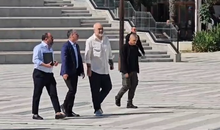
 Flash News
Flash News
Posta e mëngjesit/ Me 2 rreshta: Çfarë pati rëndësi dje në Shqipëri
Ceno Klosi with over 800 stolen votes, Balluku finds the reason is the tiredness of the counters
"Fast & Furious" in the former Block, police chase an Audi Q8, 4 cars collide
Car hits two tourists on a motorcycle in Fushe Arrëz, one of them dies
Serious accident in Thumanë, one dead, 3 injured
2024: The Year of SkyEncrochat and "popular" linguists, the gravediggers of Albanian

Alfred Lela
Oxford's Word of the Year for 2024 was 'brain rot,' chosen to mark the global population's long, almost unconscious journey into social media and the internet. The word is a 19th-century throwback, first used by American writer Henry David Thoreau.
If we were to search the virtual engine for the most used words in the media-political and widespread debate in Albania for the year 2024, we would wander somewhere between “wiretapping,” “arrests,” and “SkyEncrochat.” The latter is one of the encrypted communication platforms on smartphones, which in the end did not turn out to be so (encrypted), as European services managed to decrypt the conversations between crime bosses and their soldiers. What perhaps caught the eye of the intelligence and security services but certainly did not surprise them was the mastery of the Albanian language, an otherwise small dialect, in these communications.
This was consistent with the data and suspicion, now not so new, that Albanian organized crime is a European and transglobal phenomenon. If this is a given for the services, or even for crime researchers, for Albanians, the fact that the leaked conversations are not simply dialogues between criminals is valid. Quite the opposite, they prove the criminalization of the political system, but also the police and the media. The appearance in these conversations of several former deputies of the Socialist Party, in an attempt to kill each other, or other rivals, in the fight for revenge, economic and territorial domination, and more seriously than that, the exposure of a legislator from the majority in the Durrës district as a candidate of the powerful gangs of the area, alarm everyone about the fatality of an occult connection between organized crime and politics.
Shown in a few lines, MP Jurgis Cyrbja, third on the Durrës list, which Prime Minister Rama heads, was not just the will of one of the city's gangs but a competition with another gang in the area to prove that their candidate, i.e., Cyrbja, was ranked higher on the list and this proved that the influence and connection with Rama was more substantial.
This is the infection of Albania's political and social consciousness, significantly escalating in the decade of left-wing socialist governance of the last decade. A brain rot that sees economic empowerment and preserving power and territory as the only platforms for social and individual existence. Of an alarming scale, although less harmful, is also the bastardization of Albanian as a language. Those who have read the transcripts of the conversations, even though they are Albanian speakers, have found it challenging to decipher the dialogues filled with hackneyed, distorted, primitivized words, a new slang that weaves the language of an Albanian minority, which is not educated in knowledge or education, but in vanity, vegetation, and crime. This may seem to many like an elitist treatment, but there is a connection between the two: the corrupted consciousness and the bastardized language. It is not, therefore, an attempt to belittle dialectal or simple Albanians, and proof of this can serve as a conversation with any elderly person in any province of Albania. Their language is primitive and straightforward but never vulgar. In the language of the elderly, an Albanian still lives where the social consciousness of the Albanian lives as original and autochthonous. They are the last splendor of Albania before our elders became part of the deputies of the Albanian parliament for the previous 12 years and the characters of the decrypted SkyEncrochat files.
In this sense, the alarm for political and linguistic awareness is of the scale of a national crisis.
In parallel with these developments, having a life of its own, with the indiscretion that usually accompanies all nonsense, a second brain rot has circulated in the Albanian public communication space: the artificial elevation of Albanian as a divine language, the oldest, the first, the most important among the world's languages, the language of languages, that is.
While Albanian is being discredited in the present (Parliament, conversations on Encrochat, Big Brother, online platforms), in virtuality - say the merchants of its antiquity - it shines. The latter, linguist Ardian Vehbiu, is called the "tale-tellers of Albanian." If you are interested, you can also find books with the same title in bookstores. He baptizes them that way to mark that tales and myths cannot undo reality and even help it hide behind a foggy mirror that damages judgment and diminishes the problem.
The ancient and the new Albanian do not meet anywhere. They are two parallel languages that do not explain the past but threaten the future. They do not predict, they do not analyze, but first, they imagine an Albania, which, even if it had existed, as they are telling us, does not help us in the present or the future and, second, they reveal an Albania that threatens us precisely from the future.
This threat is revealed by the fact that their promoters, such as E. Kocaqi, A. Dalipaj, M. Mema, S. Guri, and some others, are praised and followed on social networks as the messiahs of history and language that never was; they are thus prophets of a past without a future. For this reason, the simulation of language and history was invented. As a rule, evidence does not need simulations. The language that is, the one that has existed until now, that communicates the soul of the Albanian minority, is under the yoke of a minute and general bastardization.
Albanians are nothing more than Albanian, their language. Its simulation from antiquity, by linguists and "popular" historians, and the stimulation of its undoing through a political-media-educational system, which is increasingly populated not by an aristocracy (here in the sense of the best), but by a kakistocracy (the rule of the worst).
Nothing demonstrates this better than language.
Latest news



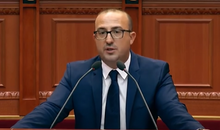
Korreshi: Election manipulation began long before the voting date
2025-07-03 09:39:13
Arrest of Greek customs officer 'paralyzes' vehicle traffic at Qafë Botë
2025-07-03 09:28:41
After Tirana and Fier, the boxes are opened in Durrës today
2025-07-03 09:21:10
Enea Mihaj transfers to the USA, will play as an opponent of Messi and Uzun
2025-07-03 09:10:04

Foreign exchange, the rate at which foreign currencies are sold and bought
2025-07-03 08:53:50
Index, Albania has the worst quality of life in Europe
2025-07-03 08:48:10


Horoscope, what do the stars have in store for you today?
2025-07-03 08:17:05
Clear weather and high temperatures, here's the forecast for this Thursday
2025-07-03 08:00:37
Posta e mëngjesit/ Me 2 rreshta: Çfarë pati rëndësi dje në Shqipëri
2025-07-03 07:46:48




Lufta në Gaza/ Pse Netanyahu do vetëm një armëpushim 60-ditor, jo të përhershëm?
2025-07-02 21:56:08
US suspends some military aid to Ukraine
2025-07-02 21:40:55



Methadone shortage, users return to heroin: We steal to buy it
2025-07-02 20:57:35
Government enters oil market, Rama: New price for consumers
2025-07-02 20:43:30
WHO calls for 50% price hike for tobacco, alcohol and sugary drinks
2025-07-02 20:41:53






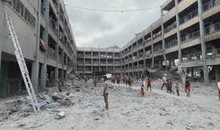
Israel agrees to 60-day ceasefire in Gaza, but many unanswered questions remain
2025-07-02 18:35:27
The weather in Germany is going "crazy", temperatures reach 40°C
2025-07-02 18:22:21

"Fast & Furious" in the former Block, police chase an Audi Q8, 4 cars collide
2025-07-02 17:59:25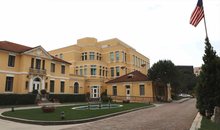
"Birth on a tourist visa? US Embassy warns Albanians: This is prohibited!"
2025-07-02 17:48:16

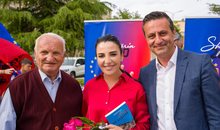
BIRN: Fier recount reveals vote trafficking within open political party lists
2025-07-02 16:57:19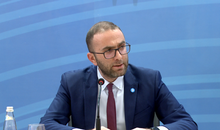

CEO and former director of 'Bankers Petroleum' arrested in Fier
2025-07-02 16:40:42
Car hits two tourists on a motorcycle in Fushe Arrëz, one of them dies
2025-07-02 16:33:23


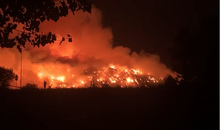
Fire at the Elbasan Incinerator Landfill, Prosecution Launches Investigations
2025-07-02 15:34:54
What you need to know if you travel to a country with active volcanoes
2025-07-02 15:33:03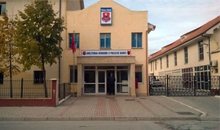



EU proposes 90% reduction in greenhouse gases by 2040
2025-07-02 14:50:23
Europe is burning from the heat / Italy and France are on maximum alert
2025-07-02 14:36:52

Moscow's contradictory statements: Is the friendship with Vučić breaking down?
2025-07-02 14:21:05
'I lost my battle': Sea warming is killing fishing in Albania
2025-07-02 14:08:35
Sekretet kimike që ndihmojnë në mbajtjen e mjaltit të freskët për kaq gjatë
2025-07-02 14:01:26
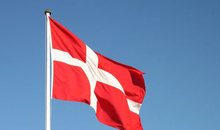
Denmark makes historic decision to make military service mandatory for women
2025-07-02 13:44:33
The appeal of the GJKKO leaves former judge Pajtime Fetahu in prison
2025-07-02 13:30:20
Productivity losses could reduce GDP by 1.3% as a result of extreme heat
2025-07-02 13:21:04
He abused his minor daughter, Zamir Meta is left in prison
2025-07-02 13:04:04

Waste burning in Elbasan, Alizoti: They are poisoning people and stealing money
2025-07-02 12:48:39
Civil disobedience continues in Serbia, dozens of people detained
2025-07-02 12:40:32
Rama's government was born under the sign of garbage and will end like this
2025-07-02 12:28:09
Water prices increase in the municipalities of the Elbasan region
2025-07-02 12:13:38
Civil disobedience continues in Serbia, what is happening in Belgrade?
2025-07-02 12:07:44
Serious accident in Thumanë, one dead, 3 injured
2025-07-02 11:54:42
Durrës Court suspends the director of Pre-University Education from duty
2025-07-02 11:49:27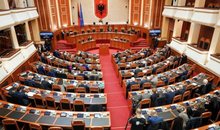
Plenary session on Thursday, what is expected to be discussed
2025-07-02 11:36:43
Europe is burning from heat waves/ What is the 'thermal dome' phenomenon?
2025-07-02 11:26:25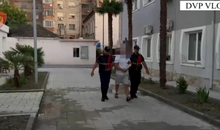
Wanted by Italy for murder, 45-year-old arrested in Vlora
2025-07-02 11:19:31
Fire situation, 28 fires reported in 24 hours, 2 still active
2025-07-02 11:13:20
"Buka" file, preliminary hearing for Ahmetaj postponed to July 17
2025-07-02 11:03:30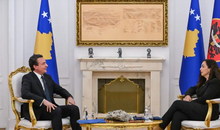


Baçi: Belinda Balluku and Ceno Klosi, the most dangerous "gangs" in Fier
2025-07-02 10:32:09
Zamir Meta, suspected of sexually abusing his daughter, arrives in court
2025-07-02 10:21:33

Trump: Israel has agreed to a 60-day ceasefire in Gaza
2025-07-02 10:01:55
Fire continues at Elbasan landfill
2025-07-02 09:51:13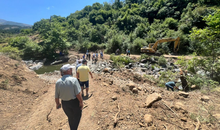

Dates to note during July, important events will occur
2025-07-02 09:31:45
The hearing for Jorgo Goro's claim is postponed
2025-07-02 09:24:19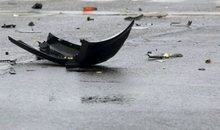

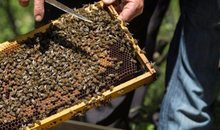

Foreign exchange, the rate at which foreign currencies are sold and bought
2025-07-02 08:42:31

52% of pensioners did not receive full pension in 2024
2025-07-02 08:27:18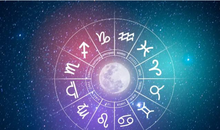
Horoscope, what do the stars have in store for you today?
2025-07-02 08:13:36
Hot weather, Wednesday brings high temperatures
2025-07-02 07:59:16
Morning Post/ In 2 lines: What mattered yesterday in Albania
2025-07-02 07:46:15
Heatwave sweeps across Europe, Spain and England record hottest June ever
2025-07-01 22:57:41


